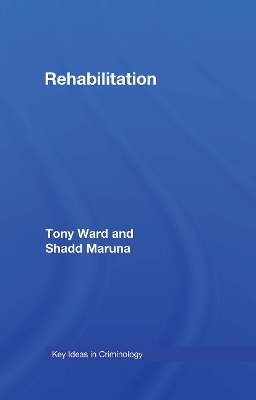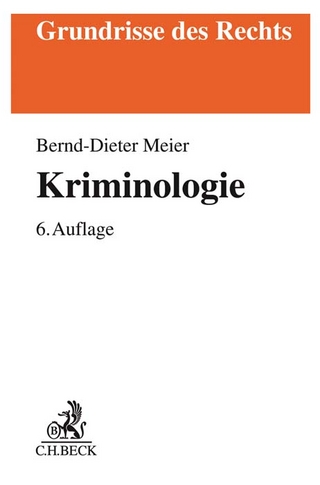
Rehabilitation
Beyond the Risk Paradigm
Seiten
2025
|
2nd edition
Routledge (Verlag)
978-0-415-70363-5 (ISBN)
Routledge (Verlag)
978-0-415-70363-5 (ISBN)
- Noch nicht erschienen (ca. April 2025)
- Versandkostenfrei innerhalb Deutschlands
- Auch auf Rechnung
- Verfügbarkeit in der Filiale vor Ort prüfen
- Artikel merken
Research shows that recidivism is greatly reduced through rehabilitation and that offenders respond well to practitioners who show an interest in them and believe in their capacity to turn their lives around. This philosophy stands in stark contrast to the punitive approaches to criminal justice, though arguably practitioners need rehabilitation theories to help them navigate through the various challenges and problems that materialize when working with offenders and understand issues such as the overall aims of intervention, what constitutes risk, what the general causes of crime are, how best to manage and work with individuals, and how to balance offender needs with the interests of the community.
The second edition of Ward and Maruna’s Rehabilitation builds on its tremendous success and presents an analysis of the core ideas underpinning offender rehabilitation. It critically examines two of the most conceptually developed theories of rehabilitation, the Risk-Need-Responsivity Model (RNR) and the Good Lives Model, including enhanced discussion of empirical and theoretical research that have emerged since the first edition. New to the second edition are three new chapters looking at the ethics of rehabilitation, and the integration between desistance research and the RNR and GLM.
The second edition of Ward and Maruna’s Rehabilitation builds on its tremendous success and presents an analysis of the core ideas underpinning offender rehabilitation. It critically examines two of the most conceptually developed theories of rehabilitation, the Risk-Need-Responsivity Model (RNR) and the Good Lives Model, including enhanced discussion of empirical and theoretical research that have emerged since the first edition. New to the second edition are three new chapters looking at the ethics of rehabilitation, and the integration between desistance research and the RNR and GLM.
Tony Ward is Professor of Psychology at Victoria University of Wellington, New Zealand. Shadd Maruna is Professor of Justice Studies and Human Development and the Director of the Institute of Criminology and Criminal Justice at Queens University Belfast.
1. How Did ‘Rehabilitation’ Become a Dirty Word? 2. What is a Rehabilitation Theory? 3. The Ethics of Rehabilitation 4. The Risk-Need-Responsivity Model of Offender Rehabilitation 5. The Risk Need-Reponsivity Model and Desistance 6. Evaluating the Risk-Need-Responsivity Model 7. The Good Lives Model of Offender Rehabilitation 8. The Good Lives Model and Desistance 9. Evaluating the Good Lives Model 10. In Search of Common Ground.
| Erscheinungsdatum | 04.07.2018 |
|---|---|
| Reihe/Serie | Key Ideas in Criminology |
| Zusatzinfo | 4 Line drawings, black and white; 4 Illustrations, black and white |
| Verlagsort | London |
| Sprache | englisch |
| Maße | 129 x 198 mm |
| Themenwelt | Recht / Steuern ► Strafrecht ► Kriminologie |
| ISBN-10 | 0-415-70363-8 / 0415703638 |
| ISBN-13 | 978-0-415-70363-5 / 9780415703635 |
| Zustand | Neuware |
| Haben Sie eine Frage zum Produkt? |
Mehr entdecken
aus dem Bereich
aus dem Bereich


